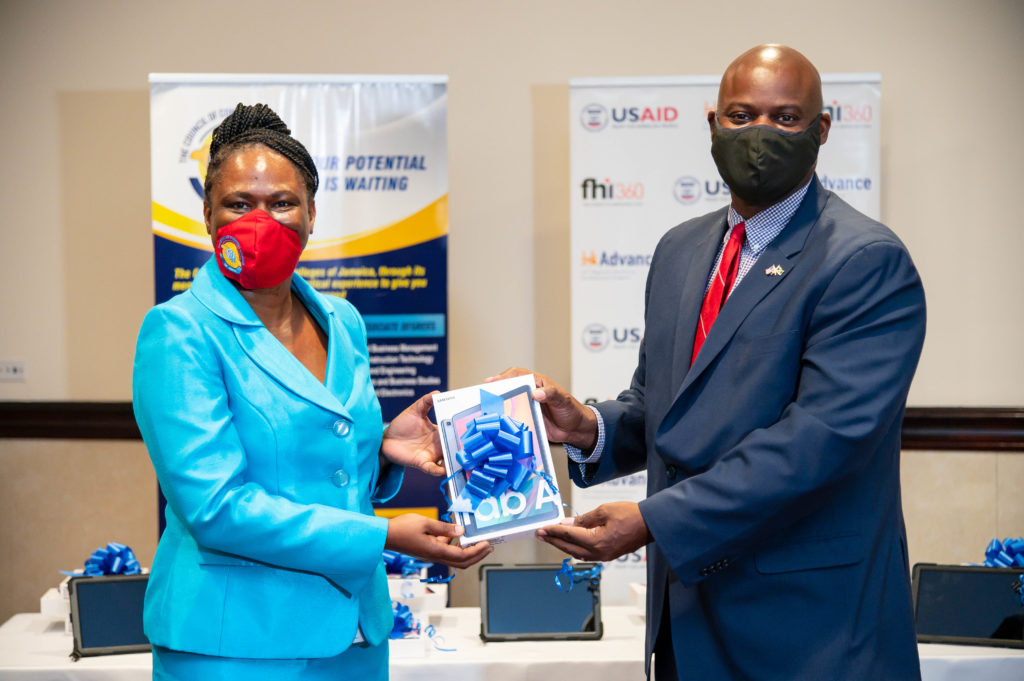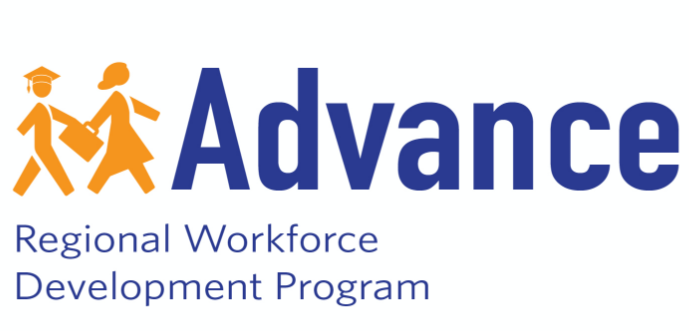What a tablet means to a student
November 18, 2021
Advance responds to distance learning

On December 17, 2020, the Advance Program donated 120 tablets to the Council of Community Colleges of Jamaica (CCCJ) to contribute to the heightened need for online learning tools during the COVID-19 pandemic. These tablets were distributed among students at CCCJ’s member colleges.
“It was difficult. I could only access my classes through my phone because I was without a laptop. When I heard that I would be receiving a tablet, I was elated, a sense of relief took over my body,” shared Shion Campbell, a first-year student at the College of Agriculture, Science and Education (CASE), a member college of CCCJ.
The pandemic has shifted the modality of learning for many students in Jamaica. Online learning is now the way forward to complete their studies. However, not all students are able to do this due to the lack of online tools to access online classes.
Shion shared several difficulties she faced with accessing her classes. The main challenges were software and platform compatibility with her mobile device, specifically Moodle. This is an online platform used by CASE to disseminate lecture notes and to host classes.
“When I heard I was going to receive a tablet, the first thought that came to mind was this is timely because I really need it. This is my first year of being in the program, and COVID-19 has made things difficult, not to mention the limitations I faced without having a laptop or tablet.” Due to the donation, Shion is encouraged to continue working hard.
Several other students shared related stories. Kayona Elliot, a second-year student, enrolled in the Agro-processing and Business Management Program at CASE, shared similar challenges and highlighted how beneficial the tablet donation is to her. “Before I received the tablet, I was using my phone that I shared with my sister, but that started to give problems, so I had to turn to my neighbours for help.” Kayona pointed out the difficulties she faced with maintaining class attendance and staying up to date with class activities and topics.
The Executive Director of CCCJ, Dr Donna Powell-Wilson said during an interview at the handover ceremony, “this donation will really help students who have been struggling to keep up with their lessons. We continue to be grateful for the support we have received from the Advance Program. We thank USAID for answering the call for assistance.”
Brittany Douglas, a student, said, “since I have received this tablet, I have no hesitations in completing my assignments. The tablet is so convenient and user friendly. I have all the office programs on my tablet. I can create PowerPoints, create Word files, bring up Excel sheets, and so much more. This [tablet] has been a lifesaver. I am forever grateful for the donors who saw the need and helped.”
“I only had my phone; it was a struggle to attend classes on it. When I found out I was getting a tablet my mind was at ease,” added Khasside Grayson, student at the Knox Community College, a member college of CCCJ.
“Learning must continue even while we are in the grips of a global pandemic. We cannot afford to let these students fall behind,” said Mr Jason Fraser, USAID Country Representative, at the handover ceremony in December. Truer words have not been spoken in the eyes of the beneficiaries. To these students, this device is the bridge between where they were and where they are going in their academic pursuits.
The Council of Community Colleges is one of Advance’s partner institutions in Jamaica. The Advance Program is funded by USAID and implemented by FHI 360.
By: Oneika Young
